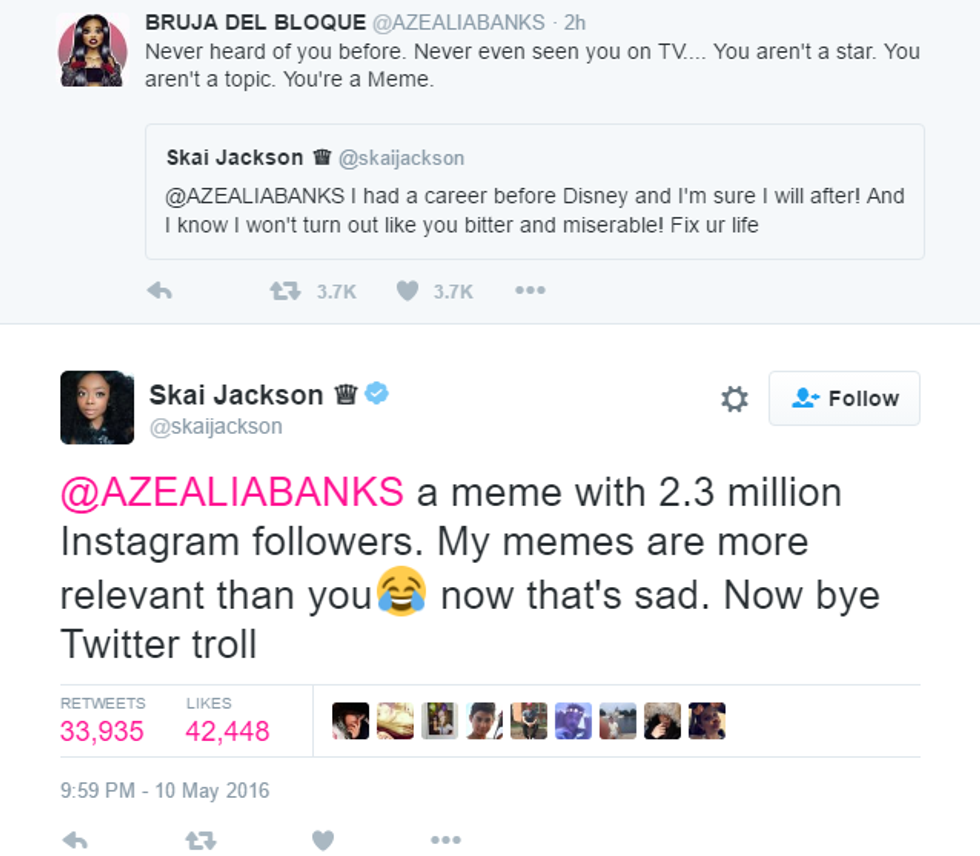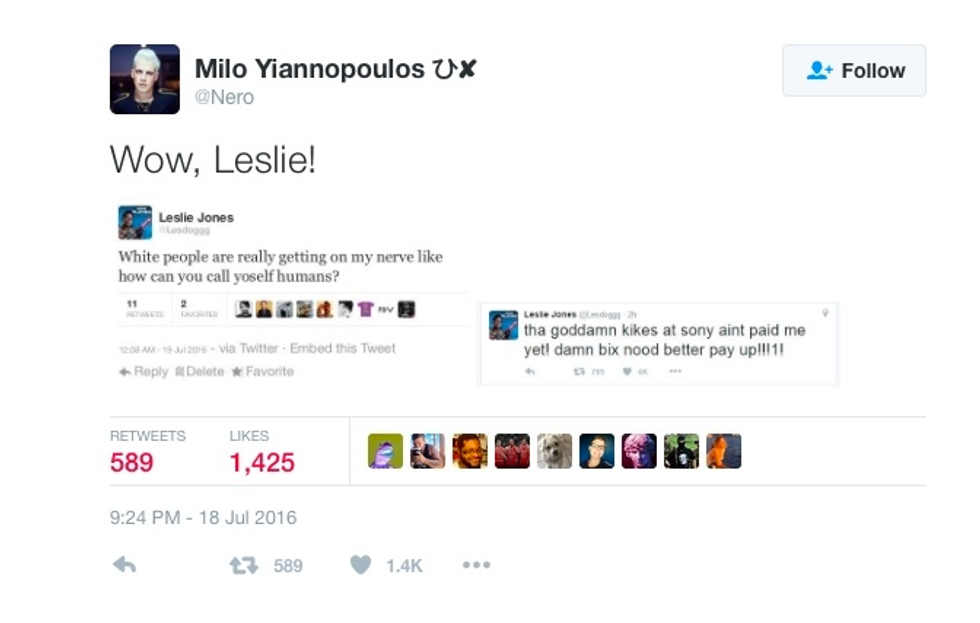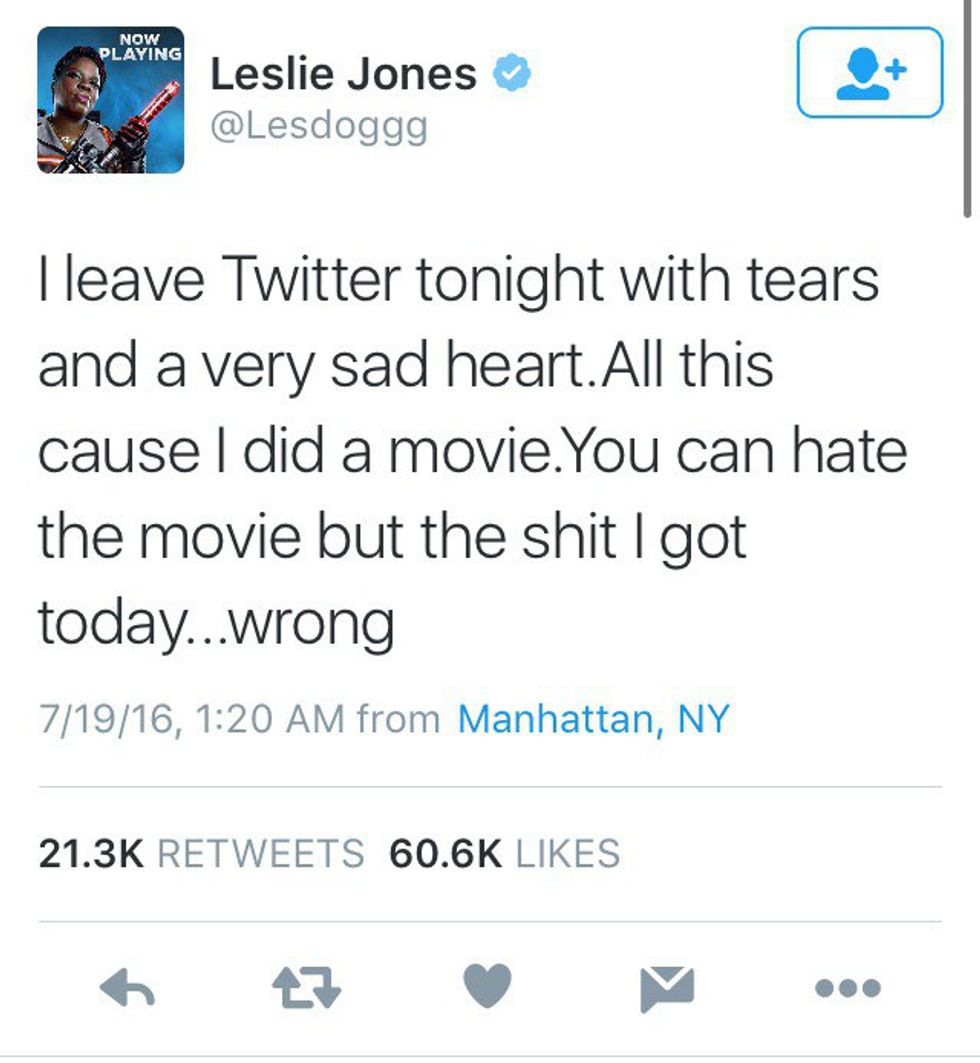Twitter is one of the few social media platforms that allows users to speak freely and utilize the First Amendment, which if you did not pass fifth grade, is the right to use free speech. This social media website as of March 2016 has 310 million active members, almost the same amount of people in the United States. Within in the many users, there are many wonderful opinions, but there are also some troubling thoughts that some users come to share. So what does Twitter do about the opinions that come to surface around certain ideas? They remove them! Well because of this, Twitter has been under much distress concerning the amount of free speech a user can utilize. Now, I am not personally condoning libel and hate speech, but in the cases of Twitter users Azealia Banks and Nero, both were used. So where does Twitter set the standards to remove people on a free social media website? How far is too far? In the following two examples, I choose not to show or repeat the hate speech that is conducted.
There are two prime examples recently in the Twitter verse that makes people question what can and can not be said online. Azealia Banks vs. Zayn Malik and Skai Jackson. The outspoken female rapper, Banks, went on a Twitter sprawl that dealt with the former One Direction band member. Malik had released his music video for his newest single, "Like I Would," and was personally criticized by Banks with racial and homophobic slurs. This is where things get interesting. During her long thread of hateful tweets, 14-year-old Disney star Skai Jackson chimed in towards the defense of Malik. The female MC then directed her vengeful fingers towards the young girl about her legitimacy as a female actress.
Recommended for you
Twitter removed Azealia Banks soon after the whole ordeal, and when she attempted to make a second account, it was soon suspended, too. Hate speech towards a young teenager and a new solo act led to the social demise of Azealia Banks.
Following the release of the female based team in the new "Ghostbusters" remake, large groups were already ready to undermine the movie for its "politically correct" nature. The all female cast is led by Saturday Night Live alumni Kristin Wiig, Kate McKinnon, and Leslie Jones. Also in the cast is Oscar Nominated Melissa McCarthy, who was nominated for her role in "Bridesmaids." Leslie Jones, one of the lead actresses of the film, was attacked online. Ranging from her looks to her race, the comedian was deeply uncomfortable and attempted to alleviate the situation at any means possible. Jones retweeted and responded to many of the users attacking her. These users were led by Milo Yiannopoulos, otherwise known as Nero, who indirectly incited the vengeful attack. He tweeted a falsified screenshot of Jones' Twitter that showed her attacking white people, thusly starting the replies towards the actress.
Leslie Jones tweeted this in response:
Since her short departure from Twitter, the user Nero was removed from the service permanently. On an interview with Seth Meyers, Leslie Jones stressed the idea of "hate speech and freedom of speech are two different things." Of course Twitter encourages different view points, that's how we learn more on any given situation, but when a supposed safe website turns into a vulgar attacking ground, that is when the website itself should stand up. And in both the cases of Nero and Azealia Banks, Twitter has successfully hindered their voices for more people to hear. The world most definitely does not need more hate spewing from one another, instead utilize this tool to openly speak of acceptance.





















